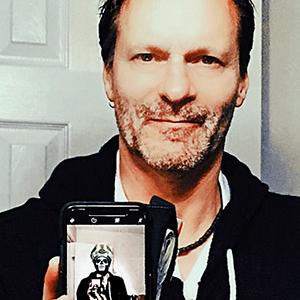Facebook to Meta: Marketing Faculty Offer Analysis
What’s in a name? Would that which we call Facebook by any other name make our kid’s birthday party photos just as sweet?
That is a billion-dollar question being asked about Facebook rebranding its parent company to Meta. Facebook CEO Mark Zuckerberg announced the big news in late October, and analysis of the rebrand was quickly shared like an adorable puppy photo on social media.

“I see it as another smokescreen,” said Marketing Communication Executive-in-Residence Doug Quintal. “I knew this was something that’s been in the works, but they’ve never been able to pull together a cogent response to anything they’ve faced through the years. It’s more obfuscation from my perspective.”
Quintal pointed to recent negative news surrounding Facebook, such as whistleblower Frances Haugen, the Facebook Papers, data privacy, and Zuckerberg’s hands-off approach that stoked the fires of fake news and the Capitol insurrection on January 6.
Quintal discussed the rebranding with his graduate-level Digital Marketing class, adding that most students aren’t Facebook natives.
“It’s not even on their radar. It’s a way to look at photos of yourself that your mom and dad and siblings are posting,” said Quintal. “Facebook has taken a back seat with younger generations to TikTok and Snapchat leading the way. Instagram is trying to take those on, and offering monetary rewards luring people from TikTok.”

Brenna McCormick, Business of Creative Enterprises (BCE) senior executive-in-residence and graduate program director for Strategic Marketing Communication (SMC), said the goal of the rebranding is two-fold.
“One objective is to create distance from the challenges and negative brand associations of the original Facebook brand, allowing the other existing brands, and new innovations, to be independent experiences,” said McCormick. “The other objective is to shake off the past by looking to the future, which is also a message in all of their visual cues around the rebranding reveal, with the images of outer space, of virtual spaces, and new technology.”
Quintal said he finds the name, Meta, to be trite.
“The scope of what he’s doing is so ill-defined, it puts a lot of people at risk in terms of their jobs and the workforce culture,” said Quintal. “There are a lot of negative byproducts of what [Zuckerberg] is doing. It begs the question of where are we going with this? If we are distrustful of him now, why should we give him the benefit of the doubt at this point?”
The rebranding also aligns with the buzzy place called the metaverse.
“The idea of the metaverse is it’s a new alternative reality that is a break from some dystopian life we’re living in, which I think [Zuckerberg] had a hand in creating,” said Quintal. “The fabric of escapism is woven into society and our culture. I get the idea of conglomerate branding wanting to be a house of brands. Ultimately, it’s kind of wanting to be the Proctor & Gamble of the social and digital world.”
Quintal said that even if customers buy into the rebranding and its augmented reality world, the company will still be run by the same operation premises that guided Facebook.
McCormick said another way of seeing it is akin to Alphabet being Google’s parent company. (Quintal pointed to Alphabet, too, but noted that their plan was more thought out, and went through beta testing.)
“I always like to play ‘what if,’ and I was imagining if this announcement came from a company like Apple, with a higher level of consumer trust, it would probably be incredibly exciting, rather than something approached with suspicion,” said McCormick.
And will the rebranding change the public’s point-of-view of Facebook?
McCormick said the company may become a proverbial necessary evil, like a phone provider, and some brands like the original Facebook may become unrecognizable.
“On the other hand, thinking optimistically, if the values implied in the Meta launch website are truly embodied throughout the company and the full portfolio of brands, then we may begin to see something truly new, especially in this space of connecting online, which they helped to create,” said McCormick.
Categories